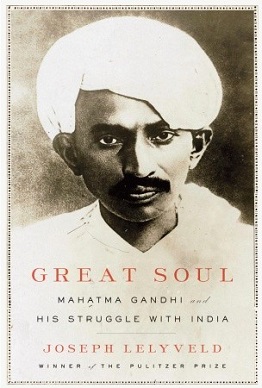 W
WBapu: Conversations and Correspondence with Mahatma Gandhi is an autobiographical description of F. Mary Barr's relationship and interactions with Mahatma Gandhi, whom she refers to as Bapu (father). Several of Gandhi's letters to the author, originally an English missionary in India, are included in full. The book was originally published in India in 1949. A revised edition was published in India in 1956. The book has been reviewed in several magazines, and discussed in other books.
 W
WThe Death and Afterlife of Mahatma Gandhi is a 2014 non-fiction book by Indian writer Makarand Paranjape and published by Penguin Random House. The book is based on the analysis of Assassination of Mahatma Gandhi and the situations after his assassination.
 W
WGandhi as a Political Strategist is a book about the political strategies used by Mahatma Gandhi, and their ongoing implications and applicability outside of their original Indian context. Written by Gene Sharp, the book was originally published in the United States in 1979. An Indian edition was published in 1999. The book has been reviewed in several professional journals.
 W
WGandhi Before India is a 2013 book by the Indian historian Ramachandra Guha, the first part of a planned two-volume biography of Mohandas Karamchand Gandhi. The book deals with Gandhi's life up to his return to India following a 21-year period as a lawyer and civil-rights activist in South Africa. During this period in South Africa, Gandhi experienced discrimination that all coloured people there faced, including the Indian community he became a part of. In response to the government's policies developed Satyagraha, a form of protest that translates loosely to "truth force".
 W
WGandhi the Man is a biography of Mohandas Karamchand Gandhi written by Eknath Easwaran. The book was originally published in the United States in 1973. Several subsequent expanded editions have been published. Foreign (non-English) editions have also been published in several languages. The book has been reviewed in newspapers, professional journals, and websites. The subtitle of the 4th edition is How one man changed himself to change the world.
 W
WGandhi Under Cross Examination is a 2009 book written by G. B. Singh and Dr. Tim Watson evaluating the iconization of Mohandas Karamchand Gandhi as a civil rights protagonist
 W
WGandhi, Fighter Without a Sword is a biography of Mohandas Karamchand Gandhi written for children by Jeanette Eaton. It is illustrated by Ralph Ray. The biography was first published in 1950 and was a Newbery Honor recipient in 1951.
 W
WGandhi: Behind the Mask of Divinity is a book by United States Army officer G. B. Singh. The book was written in biographical form nearly 60 years after the assassination of Mohandas Karamchand Gandhi, and challenges his image as a saintly, benevolent, and pacifistic leader of Indian independence, told through Gandhi's own writings and actions over the course of his life. The book claims that Gandhi emulated racism from the Hindu ideology of caste towards the blacks of South Africa and the Untouchables, instigated ethnic hatred against foreign communities, and, to this end, was involved in covering up the killing of American engineer William Francis Doherty.
 W
WGandhi's Truth: On the Origins of Militant Nonviolence is a 1969 book about Mahatma Gandhi by the German-born American developmental psychologist Erik H. Erikson. It won the Pulitzer Prize for General Non-Fiction and the U.S. National Book Award in category Philosophy and Religion.
 W
WGreat Soul: Mahatma Gandhi and His Struggle With India is a 2011 biography of Indian political and spiritual leader Mohandas Karamchand Gandhi written by Pulitzer Prize-winning author Joseph Lelyveld and published by Alfred A Knopf.
 W
WThe Story of My Experiments with Truth is the autobiography of Mohandas K. Gandhi, covering his life from early childhood through to 1921. It was written in weekly installments and published in his journal Navjivan from 1925 to 1929. Its English translation also appeared in installments in his other journal Young India. It was initiated at the insistence of Swami Anand and other close co-workers of Gandhi, who encouraged him to explain the background of his public campaigns. In 1998, the book was designated as one of the "100 Best Spiritual Books of the 20th Century" by a committee of global spiritual and religious authorities.